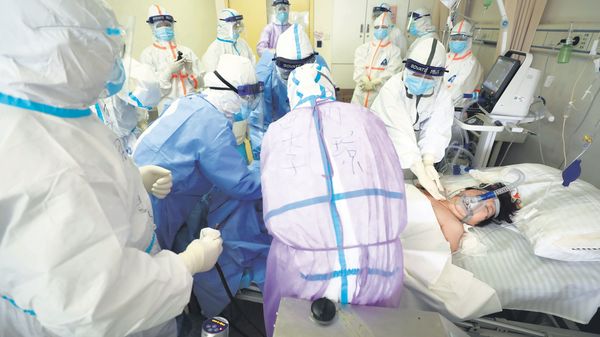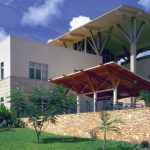- Potential vaccine in development for COVID-19 using new, fast-growing tobacco plant technology – pre-clinical testing under way
- Tobacco plants offer the potential for faster and safer vaccine development compared to conventional methods
- Potential to manufacture 1-3 million doses of vaccine per week
April 1, 2020: BAT’s US bio-tech subsidiary, Kentucky BioProcessing (KBP), is developing a potential vaccine for COVID-19 and is now in pre-clinical testing. If testing goes well, BAT is hopeful that, with the right partners and support from government agencies, between 1 and 3 million doses of the vaccine could be manufactured per week, beginning in June.
While KBP remains a commercial operation, the intention is that its work around the Covid-19 vaccine project will be carried out on a not for profit basis.
The vaccine in development uses BAT’s proprietary, fast-growing tobacco plant technology which has several advantages over conventional vaccine production technology:
- It is potentially safer given that tobacco plants can’t host pathogens which cause human disease.
- It is faster because the elements of the vaccine accumulate in tobacco plants much more quickly – 6 weeks in tobacco plants versus several months using conventional methods.
- The vaccine formulation KBP is developing remains stable at room temperature, unlike conventional vaccines which often require refrigeration.
- It has the potential to deliver an effective immune response in a single dose.
BAT’s US subsidiary, Reynolds American Inc, acquired KBP in 2014, with the aim of using some of its unique tobacco extraction technology to aid further development of its new category non-combustible products.
In 2014, KBP made headlines as one of the few companies with an effective treatment for Ebola, having manufactured ZMapp™ with California-based company Mapp BioPharmaceuticals in partnership with the U.S. Biomedical Advanced Research and Development Authority (BARDA).
KBP recently cloned a portion of COVID-19’s genetic sequence which led to the development of a potential antigen – a substance which induces an immune response in the body and in particular, the production of antibodies. This antigen was then inserted into tobacco plants for reproduction and, once the plants were harvested, the antigen was then purified, and is now undergoing pre-clinical testing.
BAT is now exploring partnerships with government agencies to bring its vaccine to clinical studies as soon as possible. Through collaborations with government and third-party manufacturers, BAT believes that between 1 and 3 million doses per week could be manufactured.
Dr David O’Reilly, Director of Scientific Research, BAT said: “We are engaged with the US Food and Drug Administration and are seeking guidance on next steps. We have also engaged with the UK’s Department for Health and Social Care, and BARDA in the US, to offer our support and access to our research with the aim of trying to expedite the development of a vaccine for Covid-19.
“Vaccine development is challenging and complex work, but we believe we have made a significant break-through with our tobacco plant technology platform and stand ready to work with Governments and all stakeholders to help win the war against Covid-19. We fully align with the United Nations plea, for a whole-of-society approach to combat global problems.”
“KBP has been exploring alternative uses of the tobacco plant for some time. One such alternative use is the development of plant-based vaccines. We are committed to contributing to the global effort to halt the spread of Covid-19 using this technology.”
About BAT: BAT is a leading, multi-category consumer goods business, established in 1902. Our purpose is to build A Better Tomorrow by reducing the health impact of our business through offering a greater choice of enjoyable and less risky products for our consumers. Our ambition is to increasingly transition our revenues from cigarettes to non-combustible products over time.
About Kentucky Bioprocessing (KBP): BAT owned KBP is located in Owensboro, Ky., where it began operations in 2006. In January 2014, KBP was acquired by and became an independently operated, wholly-owned subsidiary of Reynolds American Inc. (RAI), owned by BAT. KBP continues to house its large, multilevel indoor plant-growth space, as well as its research and production laboratories, clean rooms and manufacturing operations in Owensboro.
KBP develops and executes processes to transform tobacco plants into “biomanufacturing factories” that efficiently produce complex proteins they would not otherwise produce. The company can grow, harvest and process as many as 3 million protein-producing tobacco plants in a production cycle that typically takes about six weeks – compared with many months using traditional biomanufacturing methods.
The company uses licensed and proprietary technologies to temporarily encode tobacco plants with the genetic instructions to produce specific target proteins. The plants are grown in an automated, climate-controlled environment that can be adjusted to optimize their production of a protein of interest.
Forward Looking Statements
References to ‘British American Tobacco’, ‘BAT’, ‘we’, ‘us’ and ‘our’ when denoting opinion refer to British American Tobacco p.l.c. (the Company, and together with its subsidiaries, the “Group”).
This release contains certain forward-looking statements, including “forward-looking” statements made within the meaning of Section 21E of the United States Securities Exchange Act of 1934, regarding our intentions, beliefs or current expectations reflecting knowledge and information available at the time of preparation and concerning, amongst other things, prospects, growth, strategies and uncertainties related to regulatory approval and the results of pre-clinical testing. BAT undertakes no obligation to update or revise these forward-looking statements, whether as a result of new information, future events or otherwise. Readers are cautioned not to put undue reliance on such forward-looking statements.
These statements are often, but not always, made through the use of words or phrases such as “aim,” “believe,” “explore,” “anticipate,” “could,” “may,” “would,” “should,” “intend,” “plan,” “potential,” “predict,” “will,” “estimate,” “strategy” and similar expressions. It is believed that the expectations reflected in this release are reasonable but they may be affected by a wide range of variables that could cause actual results to differ materially from those currently anticipated, including uncertainties related to regulatory approval and the results of pre-clinical testing.








